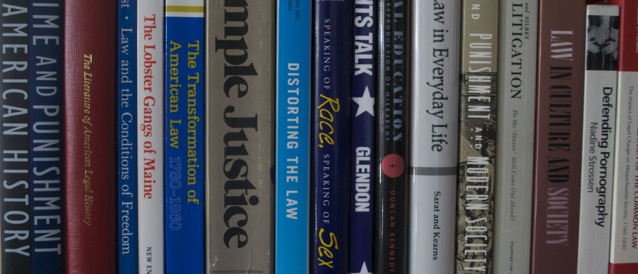 Inquiring Minds asks people to choose a book, article, film, radio story, or other media piece that changed the way they think about law and how it works in society. TLOTL
Inquiring Minds asks people to choose a book, article, film, radio story, or other media piece that changed the way they think about law and how it works in society. TLOTL
By Cass Sunstein
When I started at the University of Chicago Law School in 1981, rational choice theory was the coin of the realm. The most impressive local economists (some of them Nobel Prize winners) insisted that human beings were rational actors (with the clear implication that anyone who disagreed was, well, irrational). The most impressive local law professors followed their lead. Law and economics had emerged as the most influential development in law schools in many decades. I was skeptical of the rational actor model, but my skepticism was uneducated and clueless; I lacked a disciplined framework, or any framework at all, by which to challenge the prevailing orthodoxy at Chicago.
In the middle 1980s, I encountered the emerging work of a young economist named Richard Thaler, starting with a funny, brilliant, eye-popping paper called Toward A Positive Theory of Consumer Choice. That paper, and a number of others, were eventually published in Thaler’s 1994 book, Quasi-Rational Economics, and so that book is my choice here.
Among other things, Thaler’s work showed that people care about fairness and are willing to sacrifice money to be fair (and to punish unfairness); that people are both careful planners and impulsive doers, and that the doers may need some help from the planners; that people hate losses from the status quo, and indeed dislike losses more than they like corresponding gains; that people separate money into different “mental accounts” (e.g., spending money, college education money, retirement money, vacation money); that people often neglect opportunity costs; and that people value goods that they already have a lot more than they value the same goods in the hands of others. These claims have turned out to have significant implications for law, including damage awards, valuation of environmental goods, and settlement negotiations.
Thaler is of course a seminal figure, and probably the key figure, behind the field of behavioral economics, which ranks among the most important developments in social science in the last half-century. Educated and inspired by his papers, I was able to think a lot differently, and much better, about the limits of rational actor models.
Cass Sunstein is the Felix Frankfurter Professor of Law at Harvard Law School. Until August he served as Administrator of the Office of Information and Regulatory Affairs, part of the White House Office of Management & Budget.









